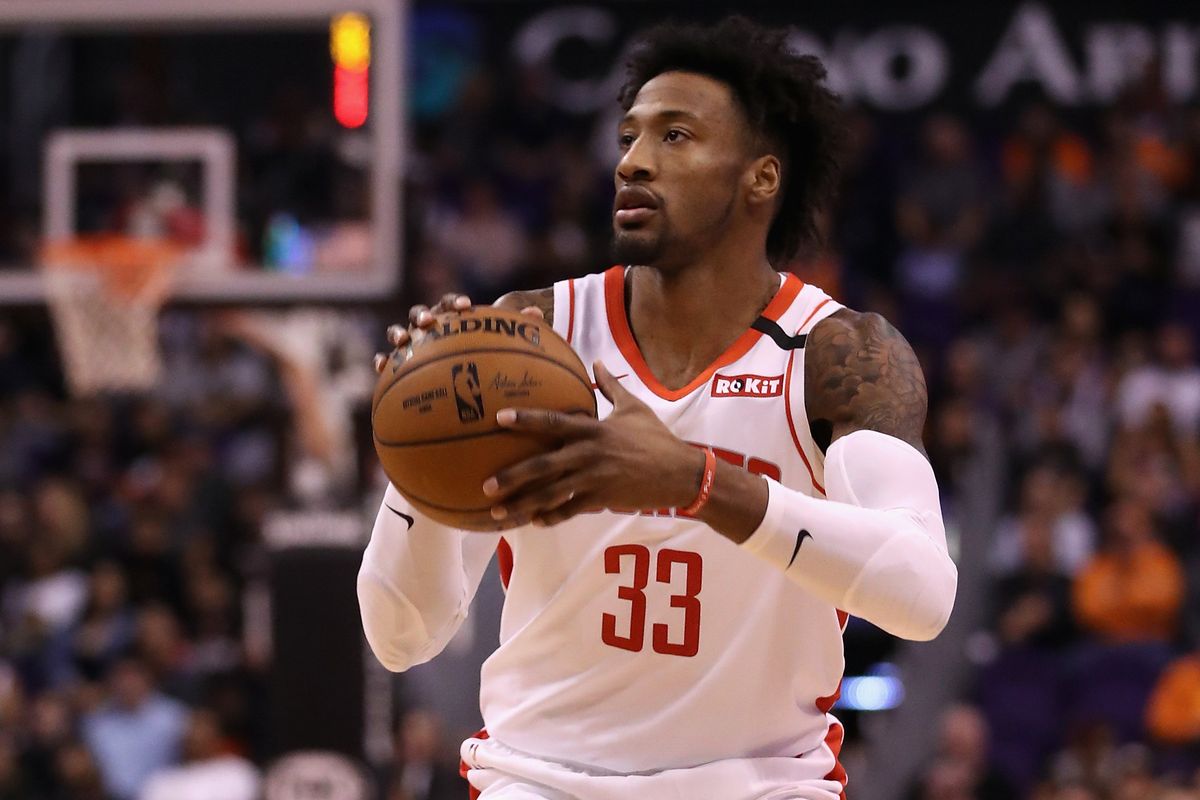Is this math problem solved?
A good addition: Robert Covington fits well in Rockets small ball equation
Feb 12, 2020, 5:50 am
Is this math problem solved?

For the second straight night in the row, Robert Covington got the start. It has helped the Rockets spread the offense out. The only thing the Rockets must do is be consistent with their shooting.
Since the Rockets traded Clint Capela, they have been able to spread the floor and take more 3-point shots. Adding Covington gives them another shooter on the floor. Covington has made big shots against Utah and LA.
"You knew he can hit threes; it did surprise me a little bit that he's hit two game winners already," Coach D'Antoni told the press. "He had two in LA; so, I didn't know he hit big shots all the time."
In the last three games, Covington is shooting 41.9% from the field, 37.5% at the three-point line, and averaging five rebounds a game. He has also been a good rebounder for the Rockets too. Covington has been a nice addition to the Rockets so far despite losing two games in a row. He did have an off night from the field in the win against Boston but still scored 12 points, seven rebounds, three steals, and four blocks. Covington was disruptive on the defensive side of the ball as well.
Another good thing about the small ball equation is the Rockets are much better in transition. They can get up the floor much quicker now because the size difference. The Rockets main strategy is to outrun bigger opponents with this small lineup. Covington adds to the Rockets athletic frame because of his quickness and length.
Harden believes in the small ball because it allows them to spread the floor and get back quicker on defense.
"We're able to get better quality shots; which allows us to set up our defense on transition," Harden told the press. "Our half court defense is pretty tough to score consistently. So that's where we want to get; we want to take quality shots and get back on transition to make teams play us half court."
Can the Rockets keep solving this problem to the equation?
Oswald Peraza hit a two-run single in the ninth inning to help the Los Angeles Angels snap a three-game losing skid by beating the Houston Astros 4-1 on Saturday night.
Peraza entered the game as a defensive replacement in the seventh inning and hit a bases-loaded fly ball to deep right field that eluded the outstretched glove of Cam Smith. It was the fourth straight hit off Astros closer Bryan Abreu (3-4), who had not allowed a run in his previous 12 appearances.
The Angels third run of the ninth inning scored when Mike Trout walked with the bases loaded.
Kyle Hendricks allowed one run while scattering seven hits over six innings. He held the Astros to 1 for 8 with runners in scoring position, the one hit coming on Jesús Sánchez’s third-inning infield single that scored Jeremy Peña.
Reid Detmers worked around a leadoff walk to keep the Astros scoreless in the seventh, and José Fermin (3-2) retired the side in order in the eighth before Kenley Jansen worked a scoreless ninth to earn his 24th save.
Houston’s Spencer Arrighetti struck out a season-high eight batters over 6 1/3 innings. The only hit he allowed was Zach Neto’s third-inning solo home run.
Yordan Alvarez had two hits for the Astros, who remained three games ahead of Seattle for first place in the AL West.
Peraza’s two-run single to deep right field that broke a 1-1 tie in the ninth.
Opponents were 5 for 44 against Abreu in August before he allowed four straight hits in the ninth.
Astros RHP Hunter Brown (10-6, 2.37 ERA) faces RHP José Soriano (9-9, 3.85) when the series continues Sunday.
